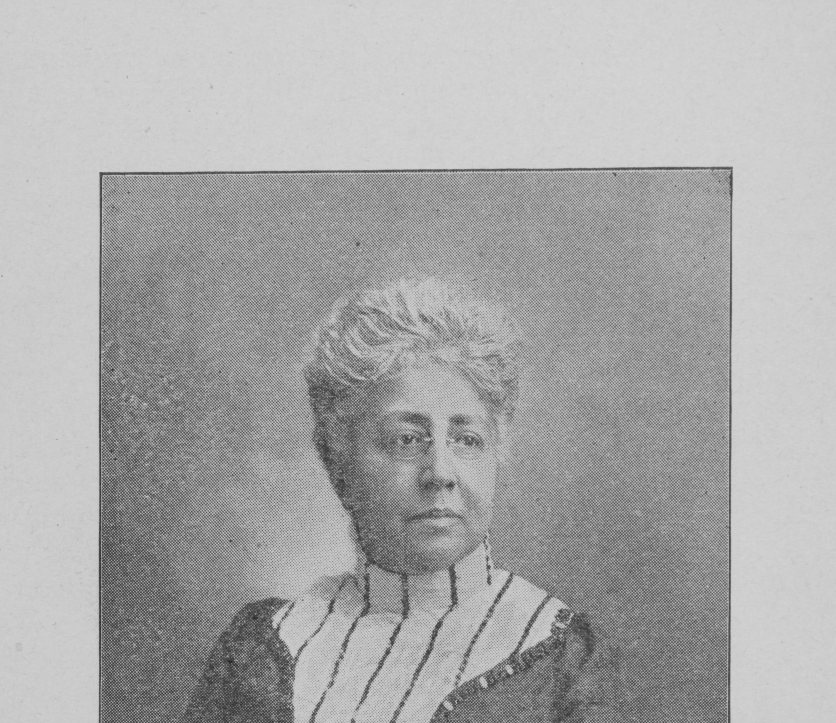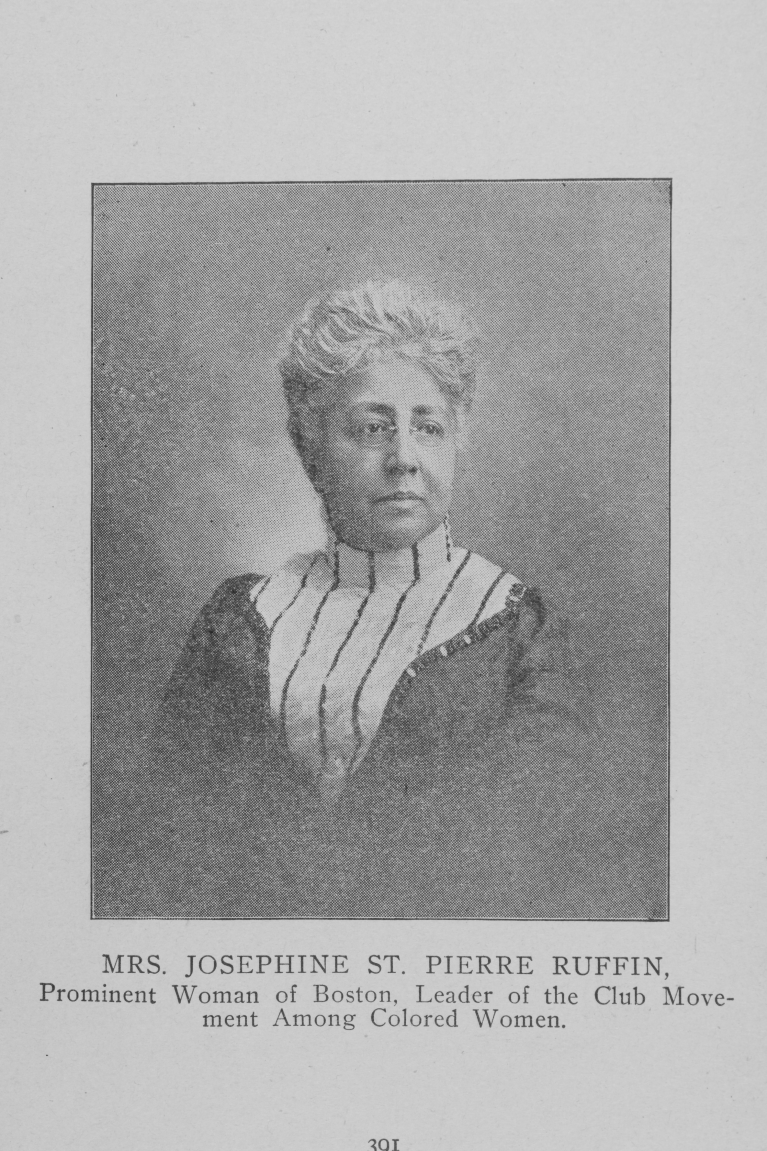(1842-1924) Civil rights advocate, suffragist, publisher
Josephine St. Pierre Ruffin
By Mariana Brandman, Ph.D.
A civil rights advocate, suffragist, clubwoman, and newspaper publisher, Boston’s Josephine St. Pierre Ruffin is best known for founding the Woman’s Era Club and convening the first-ever National Conference of Colored Women in 1895.
Josephine St. Pierre Ruffin was born in Boston on August 31, 1842 to a white mother from England and a Black father from Martinique. Her father, a founder of the Boston Zion Church, owned a clothing business that made him a wealthy and well-known member of the community. Ruffin attended school in nearby Salem until the Boston schools integrated in 1855.
In 1858, Ruffin married George Lewis Ruffin, a barber from another affluent Black family in Boston. George Ruffin went on to become the first African American to graduate from Harvard Law School and the first Black judge in Massachusetts. They soon moved to England in response to the U.S. Supreme Court’s 1857 Dred Scott decision, which held that Black people were not U.S. citizens, but they returned after the outbreak of the Civil War to support the fight against slavery. The couple had four sons and one daughter.
Ruffin began her efforts in public service during the Civil War by recruiting Black men for the 54th and 55 the Massachusetts infantry regiments. After the war, she joined the Massachusetts Woman Suffrage Association (MWSA) and forged connections with prominent suffragists such as Lucy Stone and Julia Ward Howe. Ruffin co-founded the Massachusetts School Suffrage Association to encourage women both to vote and to run for office. In 1885, she ran MWSA’s voter outreach campaign in the predominantly African American Beacon Hill and West End neighborhoods. Two years later, she helped found MWSA’s West End Suffrage League and served as its first president.
Ruffin’s husband passed away in 1886, after which she decided to further dedicate herself to working on behalf of Black women. After years of active service in women’s clubs, she co-founded The Woman’s Era Club in 1893 with Maria Louise Baldwin, Ida B. Wells, and several other Black women from Boston. It was not officially a Black women’s club, but its membership was largely African American and the club was devoted to improving conditions and promoting education for Black Bostonians, as well as anti-lynching efforts and women’s suffrage. In 1894, the club’s newsletter, The Woman’s Era, began national distribution. It made history as the first national newspaper created by and for Black women.
Ruffin and her daughter, Florida Ruffin Ridley, organized the first National Conference of Colored Women in America. Publicized in The Woman’s Era, the conference took place in Boston in 1895 and drew 100 women from twenty clubs across the country. Ruffin and the other conference attendees established an umbrella organization to unify their clubs, later called the National Association of Colored Women’s Clubs (NACWC), which still exists today.
Alongside her work to bolster Black women’s clubs, Ruffin also attempted to integrate the General Federation of Women’s Clubs. In 1900, she sought federation membership for the Woman’s Era Club without mentioning the race of most of its members. The federation accepted the Woman’s Era Club and Ruffin traveled to their national convention, but when they discovered her race, they denied her club’s membership.
Ruffin spent the next two decades giving speeches about racial equality and women’s rights throughout the country. She remained an active clubwoman and helped found the Boston chapter of the National Association for the Advancement of Colored People (NAACP) in 1910. Ruffin passed away on March 13, 1924.
Additional Resources:
The Woman's Era (Boston, Mass.: 1894-1897). Digital Commonwealth. https://www.digitalcommonwealth.org/collections/commonwealth:tb09mp36c
Josephine St. Pierre Ruffin Museum Display Panel: https://www.sec.state.ma.us/mus/pdfs/16-Ruffin.pdf
Bibliography:
Boomer, Lee. “Life Story: Josephine St. Pierre Ruffin.” Women & the American Story (blog). https://wams.nyhistory.org/industry-and-empire/fighting-for-equality/josephine-st-pierre-ruffin/.
“Josephine St. Pierre Ruffin | DPLA.” Black Women’s Suffrage | DPLA. http://blackwomenssuffrage.dp.la/key-figures/[figId].
“Josephine St. Pierre Ruffin (U.S. National Park Service).” https://www.nps.gov/people/josephine-st-pierre-ruffin.htm.
Knight, Stephanie. “Josephine St. Pierre Ruffin (1842-1924),” January 18, 2007. https://www.blackpast.org/african-american-history/ruffin-josephine-st-pierre-1842-1924/.

